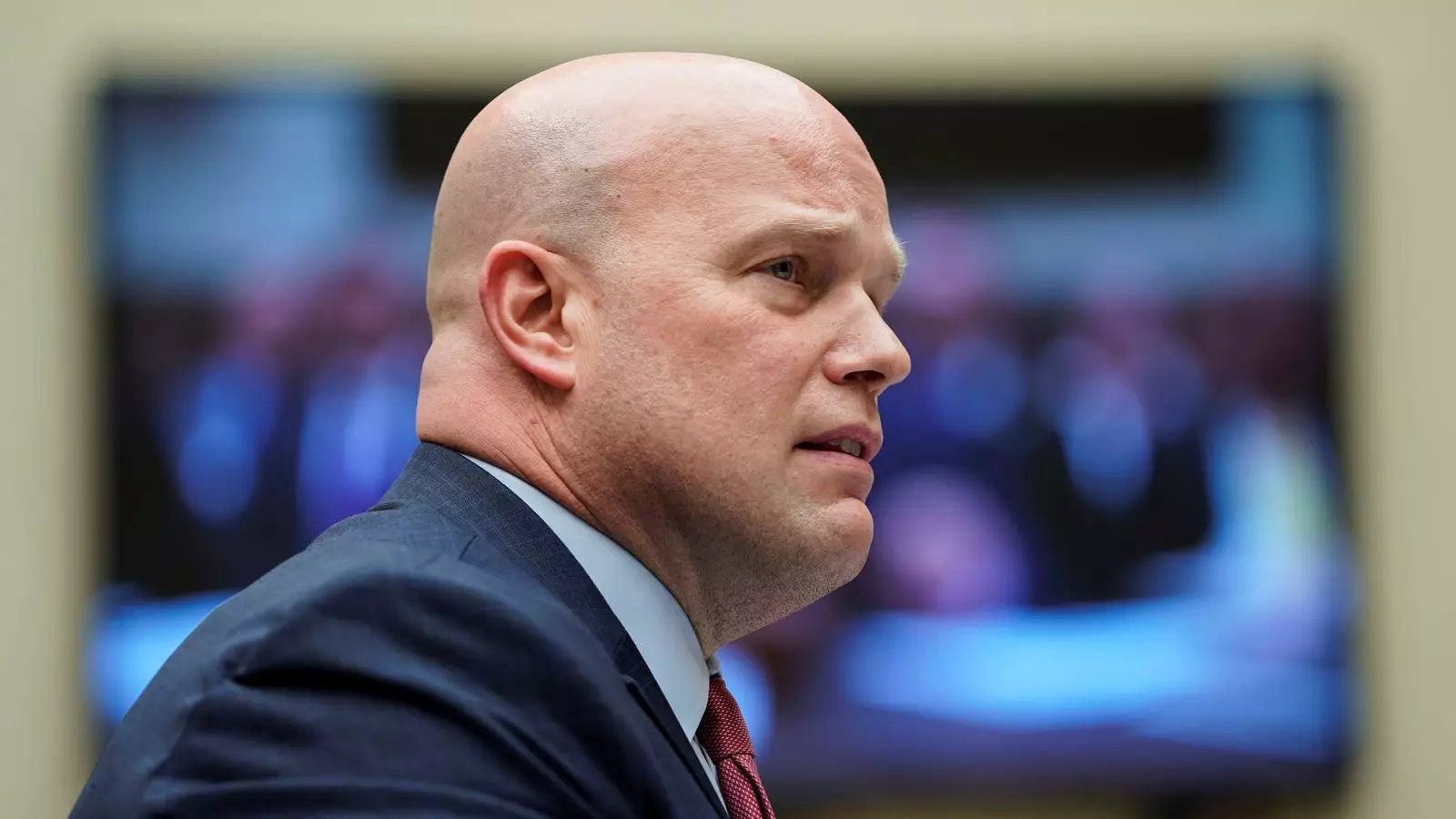In a world that urgently requires collaboration to address existential crises—climate change, pandemics, and social inequality—one would hope that global powers can focus more on diplomacy rather than weaponry. Yet the United States, under the endorsement of figures like Matthew Whitaker, has issued a jarring ultimatum to NATO allies: a commitment to allocate a staggering 5% of their gross domestic product (GDP) towards defense spending. This directive, framed not as a suggestion but as a demand, represents a dangerous priority shift that places military might above all else—blindsiding the very principles of cooperation and stability that NATO was founded upon.
Peering into Political Motivation
The insistence on increased military expenditure under the guise of “peace through strength” feels more like a veiled attempt to galvanize political support for a militaristic agenda than a genuine desire for peace. This hyper-aggressive rhetoric serves the interests of arms manufacturers and militaristic policymakers more than it serves the public, which is often burdened with the ramifications of such policies. Why not reallocate these resources towards essential public services? The answer, despite its discomfort, lies in the historical entrenchment of the military-industrial complex—a system that thrives on war and conflict.
The UK’s Dither and Dazzle
Simultaneously, the UK faces a political quagmire. With leaders like Sir Keir Starmer seemingly compelled to resonate with the U.S. demand, the commitment to raise defense spending to the unyielding percentage of 3.5%—with yet another 1.5% for related areas—underscores the alarming capitulation of national priorities. To frame such expenditures as intrinsic to national security is a narrative designed to sidestep the genuine concerns of British citizens who, while undoubtedly valuing safety, may prioritize health, education, and social welfare more highly than rampant military spending. Prime Minister’s past references to mere ‘ambition’ in this regard feel like an underlying acknowledgment of the political sensitivities involved, yet the inevitability of shifting positions reveals a stark reality: many current leaders may prioritize international showmanship over domestic well-being.
The Echoes of a Buckling Alliance
Indeed, voices like NATO Secretary-General Mark Rutte’s insistence on surpassing the current 2% GDP benchmark emphasize a disheartening trajectory. Proposals to maintain a military budget of 3.5% plus an extra 1.5% prioritize readiness for potential conflicts while neglecting the roots of cooperation that NATO should embody. The realistic acknowledgment that greater military investment is necessary—if not an outright certainty—implies a troubling understanding of global dynamics: that the path forward seems irrevocably tied to military might rather than engaging diplomatic efforts.
Moreover, the reiteration that “this is not a suggestion” serves more as a warning than an invitation to ally nations. The urgency in this message betrays a stark realization that the US has decided that it is less interested in collaborative defense partnerships and more focused on demanding blind allegiance. It raises eyebrows—what cost will allies pay despite their own pressing societal needs?
Days of Reckoning Ahead
As NATO heads towards an upcoming summit in the Hague, the stakes are palpable. Not only is the future of defense spending on the line; but also the notion of what NATO itself should represent in this evolving geopolitical landscape. As regional tensions mount—whether it be with Russia or elsewhere—emphasizing military expenditures as the sole solution is a capitulation to fear.
Democratic nations must recognize the necessity for ensuring other kinds of security: social, economic, and environmental. But when political conversations center around rigid military commitments decided by the belligerent tone of a few, we risk eroding the very notion of democratic coexistence. Let us not get ensnared in a cycle of escalation when the alternative of cooperative diplomacy could lead to more lasting peace and stability. The path forward should not be dictated by the language of threats, but rather by compassionate dialogue that acknowledges and addresses the multifaceted nature of global insecurity.



Leave a Reply